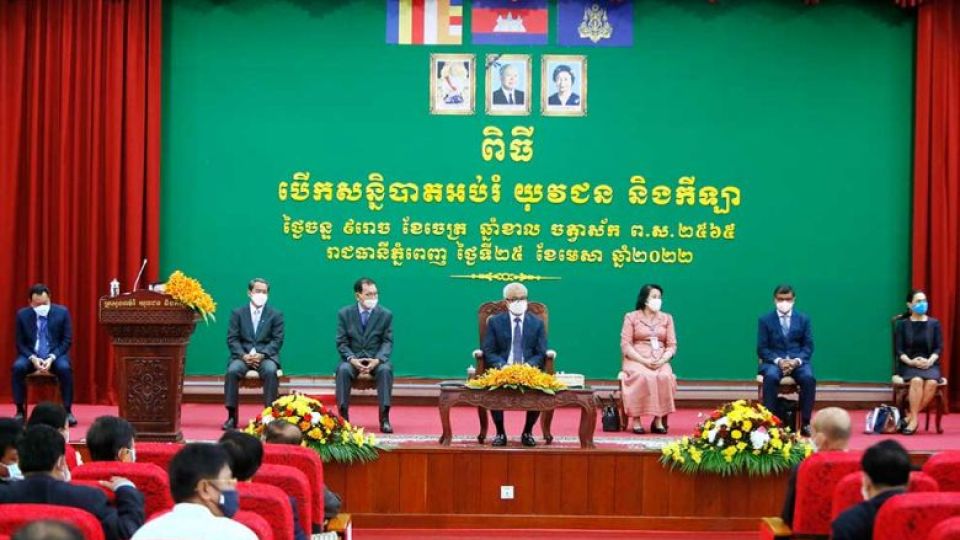April 26, 2022
PHNOM PENH – Minister of Economy and Finance Aun Pornmoniroth said Cambodia’s education sector is working towards digital reform in line with Cambodia’s digital socio-economic policies for 2021-2035.
Pornmoniroth made the remarks while speaking at the annual meeting for the Ministry of Education, Youth and Sport, held at the Institute of Technology of Cambodia on April 25.
“I am really delighted and proud to note that our education sector is moving forward toward digital reform. Such reforms are the correct response to Cambodia’s digital socio-economic policies for 2021-2035,” he said.
He also said he appreciated the leaders of the education ministry and all of the education officials at all levels for trying their best to teach students during the pandemic and for following health measures and ensuring that the school reopening went smoothly.
He said moving towards education in a digital format is important because youth relate to this new way of leaning which is modern and of high quality, especially now with the advancements in technology and internet speeds that have been achieved.
Pornmoniroth said that building the capacity for students, youth and the general public to be able to use technology effectively and in a smart manner is vital to ensuring a comparative advantage for Cambodia in the region.
“I really support digital education initiatives to strengthen digital literacy for students and youth to gain economic and digital benefits and to make the younger generation capable of benefiting from new technologies and from digital markets,” he said.
Education minister Sport Hang Chuon Naron said there are a total of 18,430 public and private schools across the countries, including 3,083 community kindergartens as well as 13,681 public schools and 1,666 private schools for grades 1-12.
He also noted that there is a total of 3,589,025 students – 71,399 at the kindergarten level, 3,277,076 at public schools and 240,550 at private schools.
Across the country, there are 130 higher education institutions, with 48 of them being state-run while the other 82 are private. A total of 198,363 students are studying at the higher education level, according to Chuon Naron.
He said that this year, the ministry had issued reform measures in the third phase to build the digital system and develop its capacity through enforcement of result-based management with solutions for each sub-sector of education.
Foroogh Foyouzat, UNICEF representative to Cambodia, said the pandemic had posed many challenges for the education sector related to distance learning and its applications.
She said, however, that the pandemic also provided a renewed momentum and opportunity for Cambodia to unlock digital learning at all levels of education.
“Building on the significant progress made over the past two years, further efforts and
Investments are needed to enable every child to access the best learning available facilitated by technology.
“We, Cambodia’s development partners, stand ready to provide the necessary support in improving digital connectivity, accessibility, platforms and content as well as improving digital skills among students and teachers,” she said.
She recommended the further strengthening of non-formal education and to promote alternative pathways to learning and skills development, including through digital education, equivalency programmes and technical and vocational education.
She said that while no concrete evidence was yet available, it was likely that the number of out-of-school children and youths in the Kingdom has increased due to the impacts of Covid-19 and the prolonged school closures amid the pandemic.


